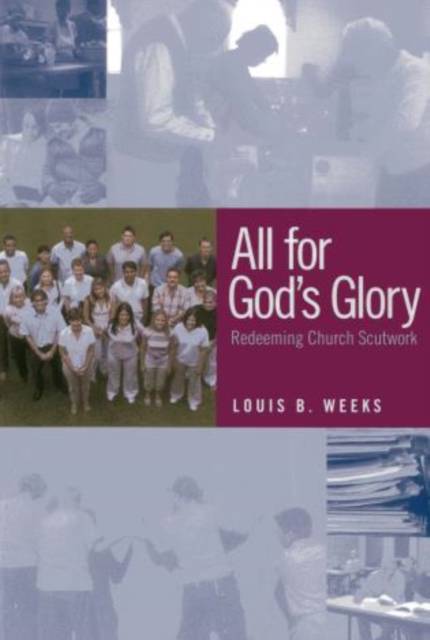
Je cadeautjes zeker op tijd in huis hebben voor de feestdagen? Kom langs in onze winkels en vind het perfecte geschenk!
- Afhalen na 1 uur in een winkel met voorraad
- Gratis thuislevering in België vanaf € 30
- Ruim aanbod met 7 miljoen producten
Je cadeautjes zeker op tijd in huis hebben voor de feestdagen? Kom langs in onze winkels en vind het perfecte geschenk!
- Afhalen na 1 uur in een winkel met voorraad
- Gratis thuislevering in België vanaf € 30
- Ruim aanbod met 7 miljoen producten
Zoeken
Omschrijving
Nobody likes scutwork, the unwanted dregs of the working day. Pastors are no exception to this, often dreading the endless e-mails and phone calls, having no heart for putting together one more bulletin or attending one more meeting, all of which feels like so much distraction from the "true" pastoral work to which they have been called. Louis Weeks challenges that paradigm and lifts up scutwork as an integral part of pastoral care and leadership. How can we administer congregations in ways most likely to increase the measure of pastoral care? How can our service, in menial and glorious work alike, build up the Body of Christ? How can all the work and worship in this congregation help God's work in the world? Preparation, organization, and other administrative duties are crucial for effective programs and mission in a congregation as elsewhere in society. Preaching, teaching, and pastoral care--three indispensable parts of congregational life--all depend upon competent congregational administration. It is through focused attention to the details of scutwork that pastors are able to build solid relationships within the congregation, and without the trust that comes from these relationships, no true pastoral care and leadership is possible. All for God's Glory explores ways in which churches are engaged and can engage in practices of administration that deepen care and build a healthy congregational community.
Specificaties
Betrokkenen
- Auteur(s):
- Uitgeverij:
Inhoud
- Aantal bladzijden:
- 180
- Taal:
- Engels
Eigenschappen
- Productcode (EAN):
- 9781566993791
- Verschijningsdatum:
- 8/12/2008
- Uitvoering:
- Paperback
- Formaat:
- Trade paperback (VS)
- Afmetingen:
- 156 mm x 234 mm
- Gewicht:
- 263 g

Alleen bij Standaard Boekhandel
+ 97 punten op je klantenkaart van Standaard Boekhandel
Beoordelingen
We publiceren alleen reviews die voldoen aan de voorwaarden voor reviews. Bekijk onze voorwaarden voor reviews.









